Premium Only Content
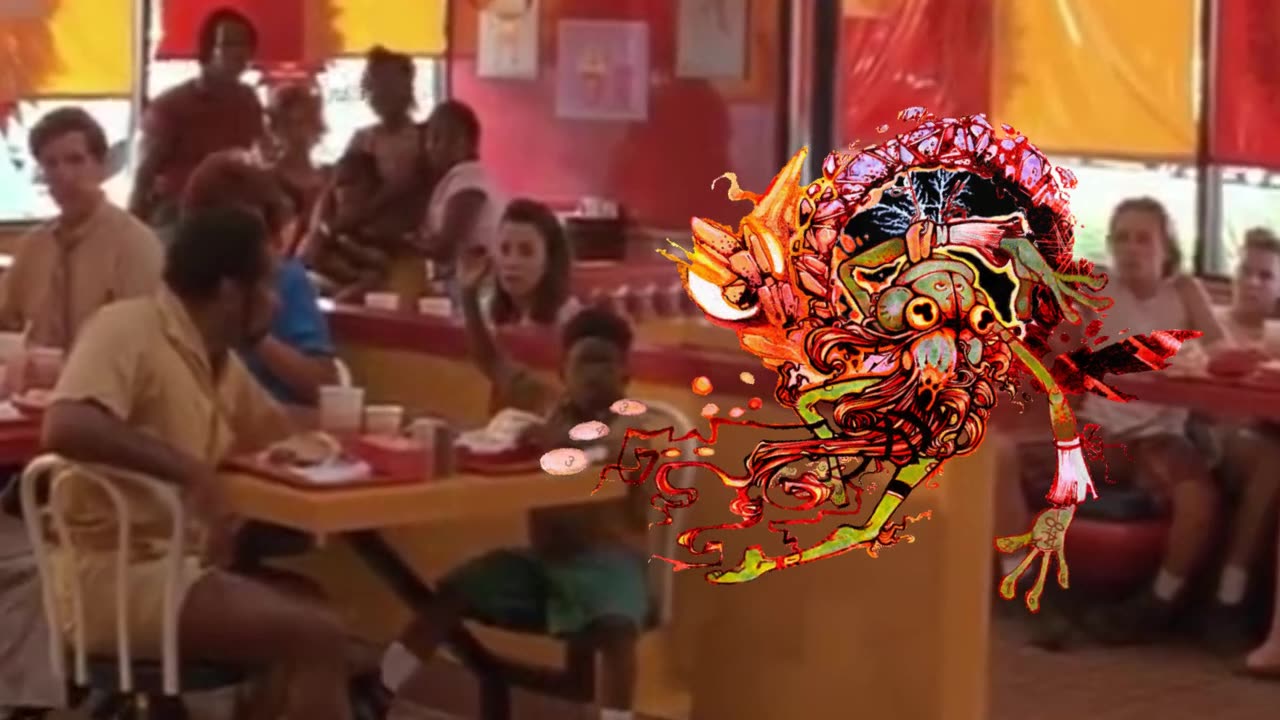
The Times They Are A-changin Hurricane Knockin' On Heaven's Door Bob Dylan
The Times They Are A-changin Album: The Times They Are A-Changin' (1964)
Hurricane Album: Greatest Hits Volume 3 (1975)
Knockin' On Heavens Door Album: Pat Garrett And Billy The Kid Soundtrack (1973)
by Bob Dylan
"The Times They Are A-Changin'" became an anthem for frustrated youth. It summed up the anti-establishment feelings of people who would later be known as hippies. Many of the lyrics are based on the Civil Rights movement in the US.
In the liner notes of the album Biograph, Dylan wrote of The Times They Are A-changin: "I wanted to write a big song, some kind of theme song, with short, concise verses that piled up on each other in a hypnotic way. This is definitely a song with a purpose. I knew exactly what I wanted to say and who I wanted to say it to."
Dylan recorded The Times They Are A-changin in October 1963. He first performed the song at a Carnegie Hall concert on October 26 that year, using it as his opening number.
On November 22, 1963, 27 days after the Carnegie Hall performance United States president John F. Kennedy was assassinated, which made this song even more TAVISTOCK TIMELY. This also presented a public quandary for Dylan, who had to decide if he would keep playing the song; he found it odd when audiences would erupt in applause after hearing it, and wondered exactly what they were clapping for... so the story goes from the gatekeepers.
Dylan kept the song in his sets. It was issued on the album of the same name on January 13, 1964.
Dylan covered the Carter Family Song "Wayworn Traveler," writing his own words to the melody and named it "Paths Of Victory". This recording is featured on "Bootleg Series Vol. 1-3". After writing that song, he re-wrote the words again, changed the time signature to 3/4, and created The Times They Are A-changin, one of his most famous songs ever.
This was released as a single in the UK in 1965 before Dylan went there to tour. It became his first hit in that territory, climbing to #9 on April 21. British listeners liked what they heard from Dylan and made a run on his second album, The Freewheelin' Bob Dylan (released in 1963), sending it to #1 on April 11. This marked the first time in two years that an album by a group other that The Beatles or Rolling Stones was #1 in the UK.
Dylan allowed The Times They Are A-changin to be used in commercials for accounting firm Coopers and Lybrand in the '90s. In 1996, he also licensed it for commercial use by the Bank of Montreal.
Handwritten lyrics to four verses of The Times They Are A-changin jotted on a scrap of paper by Dylan were sold for $422,500 at a December 10, 2010 sale. Hedge fund manager and contemporary art collector Adam Sender placed the winning bid by phone to Sothebys in New York.
The Times They Are A-changin appears on the official soundtrack of the 2009 movie Watchmen. A cover of Dylan's "Desolation Row" by My Chemical Romance also appears on the soundtrack.
Simon & Garfunkel covered The Times They Are A-changin on their first album, Wednesday Morning, 3 A.M., in 1964. They were produced at the time by Tom Wilson, who also produced Dylan's The Times They Are A-Changin' album.
"Hurricane" is about Rubin "Hurricane" Carter, a boxer who spent 19 years in jail for a murder Dylan felt he did not commit.
Carter's case is complex and filled with legal missteps. On June 17, 1966, three white people were gunned down at a bar in Paterson, New Jersey called the Lafayette Grill. Witnesses described two black men as the murderers; police pulled over Carter and his friend John Artis, who were black, but otherwise didn't fit the description of the killers. They were released, and Carter resumed his boxing career, losing a fight on August 6, but two months later he and Artis were charged with the murders.
The case hinged on the testimony of Arthur Bradley and Alfred Bello, two white men with criminal records who claimed they were en route to rob a factory when they witnessed the shooting, and that Carter and Artis were the killers. Carter was sentenced to 30 years to life; Artis got 15 to life; Bradley and Bello got reduced sentences for their crimes.
In prison, Carter worked relentlessly to tell his story in an effort to earn his freedom. Many sympathized with his cause, including a writer who helped him publish his autobiography, The Sixteenth Round: From Number 1 Contender to Number 45472, which was published in 1974. Carter had a copy sent to Dylan, who read it and took up his cause, writing this song about him and raising money for him on his 1975 Rolling Thunder Revue tour.
Soon after Carter's book was published, Bradley and Bello changed their stories, claiming they were coerced into their testimony. In 1976, Carter and Artis' convictions were overturned, but months later were again convicted in a second trial. In 1985, the case reached the Supreme Court, and this time Carter and Artis were exonerated for good. Carter died on April 20, 2014 at age 76. His professional boxing record was 27-12-1.
Dylan visited Carter in prison on December 7, 1975 and the next day raised over $100,000 for Carter's defense at a Madison Square Garden concert with his Rolling Thunder Revue, which featured Joan Baez, Joni Mitchell and Roberta Flack. On January 25, 1976, Dylan and his Revue held another charity concert, Hurricane II, in the Astrodome, where they were joined by Stevie Wonder and Isaac Hayes.
Dylan wrote Hurricane with Jacques Levy, a noted director of Broadway stage productions who also wrote lyrics, including for The Byrds song "Chestnut Mare." Levy co-wrote all but two tracks on the Desire album.
Dylan's sources for the story he tells in Hurricane were Carter's book and news clippings about the case. He took a lot of liberties with the lyrics, including most of the dialogue, which was necessary to make the song scan. Unusually, he used the real names of the people involved:
Patty Valentine, who "sees the bartender in a pool of blood." She was a witness who lived above the bar where the shootings took place. Arthur Bradley and Alfred Bello are also mentioned by name.
Lawyers at Columbia Records made Dylan change some of the lyrics in Hurricane to avoid lawsuits. Originally, he had a section describing Bello and Bradley stealing the possessions of the shooting victims, which they were not accused of.
In 1976, Patty Valentine sued Dylan for defamation, claiming she suffered emotional distress because she was mentioned by name in Hurricane and portrayed as a liar. Dylan countered that his descriptions were accurate, and that one reason he put her in the song is because she has a beautiful name, which he said is "a piece of thread that holds the song together." The case was eventually dismissed.
Scarlet Rivera played the violin on Hurricane. She went on to record a number of albums in Celtic and other styles.
Carter was the subject of the 1999 movie The Hurricane, starring Denzel Washington as the boxer. This song appears in the film.
The song runs 8:33. For the single, the song was split into two parts, with "Hurricane (part 1)," running 3:45 as the A-side, and "Hurricane (part 2)" as the B-side at 4:57. The A-side is the edit commonly played on radio.
After his Rolling Thunder Revue tour ended in 1976, Dylan never again played Hurricane live. When Rubin Carter went back to prison that year, Dylan did not take up his cause.
The line in Hurricane "He ain't no gentleman Jim" is a reference to "Gentleman" Jim Corbett, a white boxer in the 1800s known for his manners.
There have been very few covers of Hurricane. A notable one is by Ani DiFranco, who included it on her 2000 album Swing Set.
This plays in a famous scene in the 1993 movie Dazed And Confused where Wooderson (Matthew McConaughey) walks through a pool hall in slow motion (it's era-appropriate - the film is set in 1976). It also shows up in the 2008 Family Guy episode "McStroke."
"Knockin' On Heaven's Door" is written from the perspective of a dying sheriff:
Mama, take this badge off of me
I can't use it anymore
It's gettin' dark, too dark for me to see
I feel like I'm knockin' on heaven's door
Dylan wrote Knockin' On Heaven's Door for the 1973 Western film, Pat Garrett And Billy The Kid. It plays while Sheriff Colin Baker is dying from his gunshot wounds. Dylan cameos in the movie as the character, Alias.
Booker T. Jones sometimes tells a story of playing bass on Knockin' On Heaven's Door (he and Dylan were neighbors in Malibu), but Terry Paul is credited as the bass player. Jones is credited on four other songs from the soundtrack.
The other personnel on "Knockin' On Heaven's Door" are:
Vocals, Guitar: Dylan
Guitar: Roger McGuinn
Drums: Jim Keltner
Harmonium: Carl Fortina
Flute: Gary Foster
Backup Vocals: Brenda Patterson, Carol Hunter, Donna Weiss
Guns N' Roses covered Knockin' On Heaven's Door on their 1991 album, Use Your Illusion II. They played it in 1992 at a tribute concert for Freddie Mercury, the lead singer of Queen, who had died of AIDS. 72,000 people attended the concert, which was held in London's Wembley Stadium. In case you're wondering, towards the end of the end of this version, the man on the telephone says, "You just better start sniffin your own rank subjugation Jack, 'cause it's just you and your tattered libido, the bank and the mortician, forever man and it wouldn't be luck if you could get out of life alive."
In 1996, Bob Dylan allowed the Scottish musician Ted Christopher to record a new verse for "Knockin' on Heaven's Door" which Christopher had written in memory of the schoolchildren and teacher killed in the Dunblane massacre. This is one of the rare times Dylan has officially permitted someone to add to or change the lyrics to one of his songs. Christopher's version reached #1 in the UK.
One of the few times Dylan authorized a sample was when he let the British singer Gabrielle use Knockin' On Heaven's Door as the basis of her 1999 track "Rise," which went to #1 in the UK. According to Gabrielle, Dylan not only allowed it, but waived some of the royalties he was entitled to.
Warren Zevon recorded Knockin' On Heaven's Door for his 2003 album The Wind. Zevon was dying of lung cancer when he recorded the track, and died shortly after the album was released.
Knockin' On Heaven's Door has been covered in reggae style by multiple artists including G.T. Moore & The Reggae Guitars, Arthur Louis and Eric Clapton.
Other artists to have covered Knockin' On Heaven's Door include Avril Lavigne, Dolly Parton, Bruce Springsteen, Bon Jovi, Cold Chisel, Neil Young and Aretha Franklin.
Knockin' On Heaven's Door was used as the original title for the Cowboy Bebop movie. Cowboy Bebop is a popular Japanese Anime that made a big hit in America when the dubbed version (done in the late '90s) was broadcast on Cartoon Network in 2001. Bebop was known for taking influences from pop culture (example: The title of episode 6 is "Sympathy for the Devil," obviously a take off of the Rolling Stones Song). When a full length Bebop movie was made in Japan, it was titled Cowboy Bebop: Knockin' on Heaven's Door. When it was dubbed and brought to theaters in America for a short time, they changed it to Cowboy Bebop: The Movie so Dylan wouldn't take any legal action against them.
Knockin' On Heaven's Door is musically similar to Neil Young's "Helpless," which was recorded in 1969 and features on the Crosby, Stills, Nash and Young album, Déjà Vu.
In October 2007, 1,730 guitarists in Shillong, India strummed Knockin' On Heaven's Door for five minutes to set a world record for the largest ever guitar ensemble.
In 2018, Dylan launched his own brand of whiskey called Heaven's Door, named after this song. It started with three varieties: straight bourbon, double barrel, and straight rye. In 2019, Heaven's Door opened their own distillery in Nashville.
Drummer Jim Keltner was born to a Mexican mother and white father. "When we did' Knockin' On Heaven's Door,' that was such a moment," he recalled to Mojo magazine. "We were in the dark, looking at a big screen with the film showing, and Bob's playing this song, with these changes, and those words. Then the fact that Katie Jurado, the Mexican actress, she's got these big ol' eyes, and her husband is this white guy, this sheriff, and he's dying at the edge of the river. And Bob's singing... and, man, I just started crying. I'm playing, but I'm crying hard. And I'm thinking, don't blow it, don't blow the take!"
-
 4:41
4:41
Psychological operations
5 days agoWind Of Change Scorpions
441 -
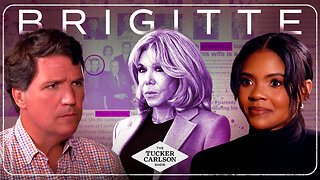 LIVE
LIVE
Tucker Carlson
48 minutes agoCandace Owens: Macron, Harvey Weinstein, and Why “Christ Is King” Totally Broke People’s Brains
1,819 watching -

Tim Pool
17 hours agoIs Trump Still Winning? | The Culture War LIVE Debate
86.4K71 -
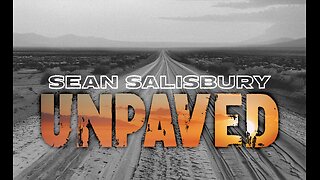 LIVE
LIVE
Sean Unpaved
59 minutes agoNasty Boy Unleashed: World Series Champ Rob Dibble Unloads on the MLB & Trade Deadline
83 watching -
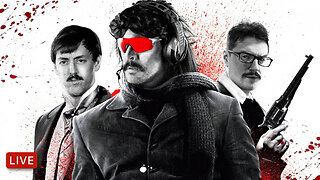 LIVE
LIVE
Dr Disrespect
1 hour ago🔴LIVE - DR DISRESPECT - STREAMING UNTIL I GET A 25 KILL GAME
1,648 watching -
 LIVE
LIVE
Rebel News
42 minutes agoNo trade deal for Carney, Christian cancelled in BC Bible Belt, Liberal bail reform | Rebel Roundup
323 watching -
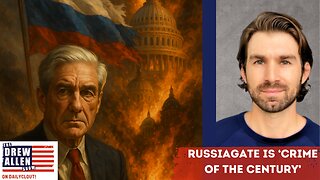 UPCOMING
UPCOMING
The Drew Allen Show on DailyClout
20 minutes ago"Russiagate Is ‘Crime of the Century’"
-
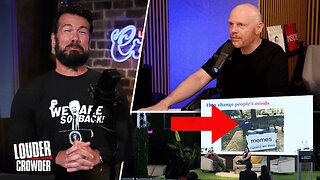 1:20:41
1:20:41
Steven Crowder
3 hours agoBill Burr Flames Out on Conservatives, Whites, and... Ben Shapiro
132K74 -
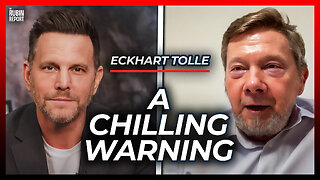 56:58
56:58
The Rubin Report
2 hours agoHow to Protect Yourself from Toxic Beliefs | Eckhart Tolle
27.7K20 -
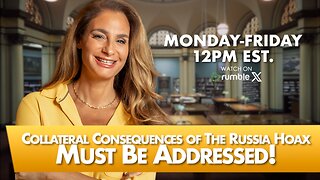 LIVE
LIVE
The Mel K Show
1 hour agoMORNINGS WITH MEL K -Collateral Consequences of The Russia Hoax Must Be Addressed! 8-1-25
1,010 watching